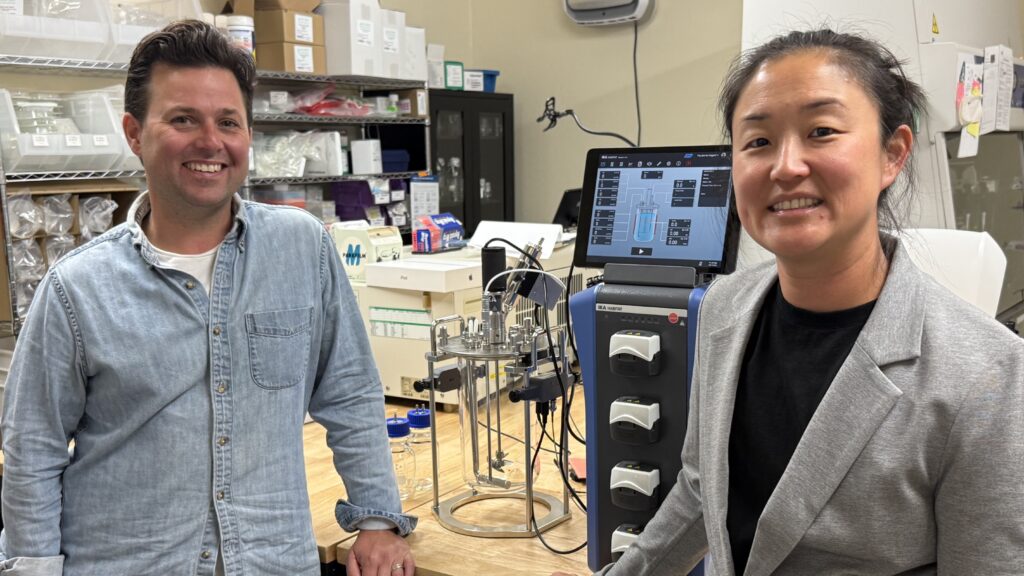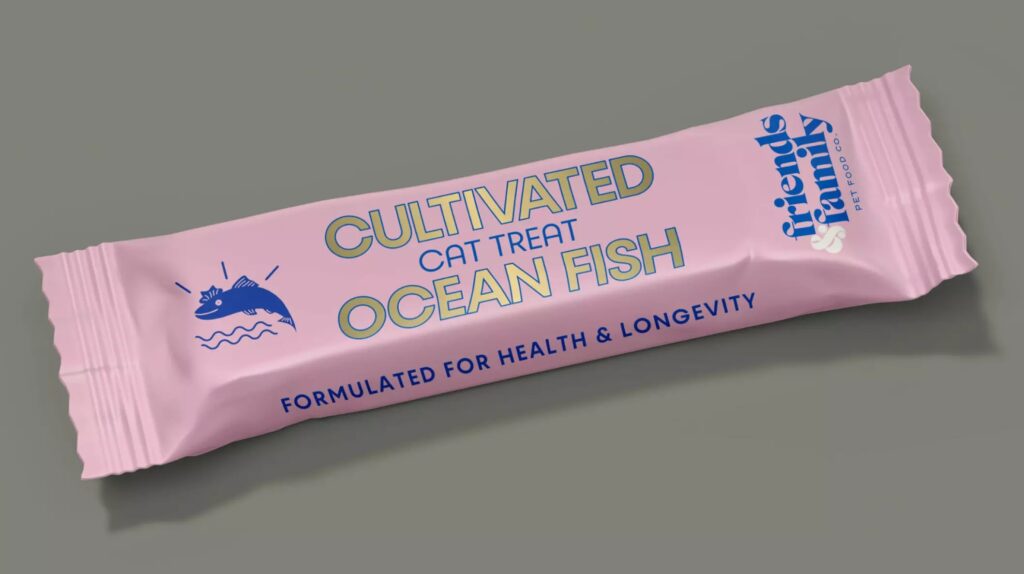
Californian startups Friends & Family Pet Food Company and Novel Farms are co-developing cultivated meat for pets, and are already engaging with regulators.
Friends & Family Pet Food Company, the newly launched startup focused on alternative pet food, has announced a second collaboration to produce cultivated meat for cats and dogs.
The Berkeley startup is collaborating with Oakland-based cultivated meat producer Novel Farms, which has a range of cell lines to make products like quail, chicken, pork and mouse meat. It complements Friends & Family’s partnership with Singapore’s Umami Bioworks to create cultivated seafood for cats, which was announced in July.
Friends & Family and Novel Foods are in the testing and prototyping stages right now to determine which meats they want to focus on, but have earmarked a 2025 launch for the product line, co-founder and CEO Joshua Errett tells Green Queen.
The target market is the San Francisco Bay Area, and to reach these consumers and their pets, Friends & Family has begun engaging with the Food and Drug Administration’s Center for Veterinary Medicine (CVM), which regulates animal feed ingredients and pet food in the US.
“Just like all food, pet food is a meat-focused industry that could use some innovation,” says Errett. “Our collaboration-heavy, asset-light approach has the potential to change pet food forever.”
He adds: “Novel Farms is a great partner for us as they check all the boxes. We will work together to make customised pet nutrition for cats and dogs.”
A business model built on tech and collaboration

Errett, who has years of experience in cultivated meat and alternative pet food, established the startup last year with pet industry veteran and COO Jonny Cruz, and veterinarian and chief science officer Sarah Dodd.
The company has developed a proprietary pet food platform with freeze-drying technology to help cultivated meat producers get to market. “Our model is to partner with talented scientists, research facilities and bioscience companies that are creating cultivated ingredients,” explains Errett.
“We especially look for ingredients that are sought-after by pet food consumers. The ingredients and technology also have to be scalable – we want to build an iconic pet brand, and to do that, we need commercial-scale ingredients. And we create a path to market for these ingredients.”
The partnership with Novel Farms is the second among several others in the works, and will see its cultivated animal ingredients be incorporated into Friends & Family’s “shelf-ready foods” for dogs and cats.
“My vision is that Friends & Family is the masterbrand, and each product line we create will have its own branded identity,” outlines Errett. “Think of it like a house-of-brands strategy. This will allow us to showcase these amazing ingredients individually, and tailor each ingredient for a specific category of pet food.”
He adds: “For instance, we can make food for puppies, and cultivate the meat in that product line to have higher calcium, more protein, more phosphorus and other nutrients that puppies need.”
Michelle Lu, founder and CEO of Novel Farms, says: “Cultivated pet food makes perfect sense as an entry point for getting cultivated products to market. As Novel Farms prepares for our own market entry in the next year, pet food is a high-impact strategic target for us.”
Cultivated meat firms must make consumers the focal point

Errett says Friends & Family’s pet food platform can help extend the ingredient, lower the cost and enhance the nutrition of the final product: “Part of our mission is to bring cultivated meat and fish to the consumer; to prove there’s demand. We can only do that if the cost is reasonable to the average pet food consumer.”
The resulting pet food will likely not be 100% cultivated meat – instead, it would be mixed with plant-based ingredients to create hybrid meat, which is the path most cultivated meat producers for humans have also taken. “We’ll aim for the highest inclusion rate we can,” says Errett.
He previously revealed that the cultivated seafood being developed with Umami Bioworks will have up to 10% fish cells upon launch, with an aim to get to 25-30% eventually. Asked how that partnership is going, Errett praised Umami Bioworks’s team as “true visionaries in not only cultivated technology, but in food”. “Things are moving along with that partnership,” he says, hinting at an update soon.
Umami Bioworks has also been in touch with the CVM with Friends & Family Pet Food, with the startups previously indicating a launch for Q1 2025.
Friends & Family is the applicant for the pet food being created with Novel Farms. “Each time we go through the regulatory process, our next application becomes stronger,” says Errett. “That’s stronger in terms of what data we need, but also the relationship we’re building with our contacts at the CVM.”
While politicians in several US states are attempting to restrict cultivated meat – Florida and Alabama have already banned it – the USDA and the FDA have both found these products to be safe, leading to the launch of Upside Foods‘s and Good Meat‘s chicken products. But consumers (and investors) remain on the fence: a global survey found that a third of pet owners are willing to try cultivated meat themselves, but nearly half would feed it to their furry friends.
“Cultivated meat and seafood companies will only be successful if they can create products that consumers love. Not simply one-to-one replacements for what’s currently out there, but products that provide true value to the end customer,” says Errett.
“I believe this is something every cultivated meat and seafood company needs to think about – even if you are B2B, somewhere along the line there will always be a C: the consumer. And you have to understand what that consumer wants. That’s why we are working closely with all our bioscience partners, to customise cultivated meat and seafood nutrition to bring the most value possible to pets.”
The post Cultivated Meat Startups Form Partnership to Bring Novel Pet Food to Californians appeared first on Green Queen.
This post was originally published on Green Queen.